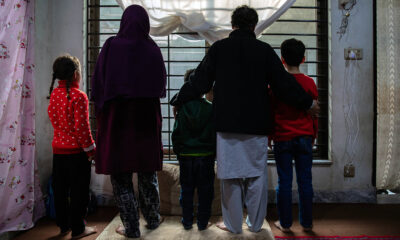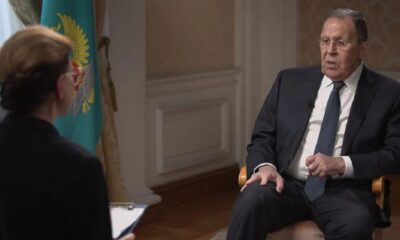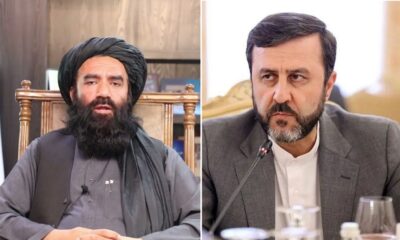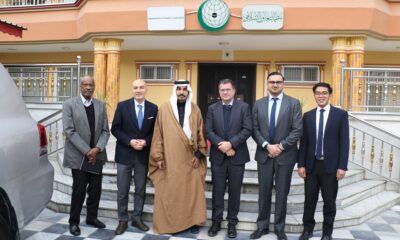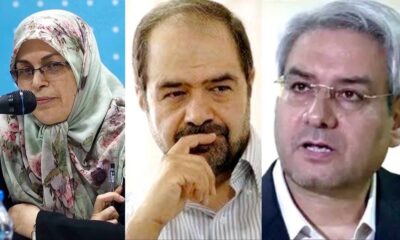Latest News
Biden still consulting on troop withdrawal issue: White House

With just over three weeks to go before the May 1 troop withdrawal deadline, White House press secretary Jen Psaki said on Monday that US President Joe Biden has not yet made a decision on the issue and is still in consultations over the matter.
In a press briefing Monday, Psaki said in answer to a question on whether the troops exit will go ahead as per the Doha agreement between the US and the Taliban: “Well, as the president has said before, it will be tough to meet the May 1st deadline for full withdrawal, for logistical reasons.
“We are continuing — he’s continuing to consult internally with his national security team and advisors and, of course, also with our partners and allies.”
She said Biden has “been working on these issues — foreign policy issues, national security issues — for several decades now and, of course, wants to take the time to make the right decision.”
Asked if the expectation could be that troops will stay in Afghanistan after the May 1st withdrawal deadline, Psaki said that Biden “set the expectation it will be tough for a full withdrawal, for logistical reasons, by that timeline.”
She said this is something that has been conveyed clearly to all partners as well. “But in terms of what’s next, you know, he just wants to take the time to make a decision,” she said.
This comes close on the heels of former Afghan president Hamid Karzai’s interview this week with TRT World where he stated that any withdrawal – or extension of troop presence – should be done in a responsible manner.
Karzai said the troop withdrawal must be carried out in a responsible manner so as to make sure it is done in coordination with major powers and countries in the region in order to ensure peace in Afghanistan.
Karzai said: “The US withdrawal or staying in Afghanistan beyond May 1 must be responsible in both cases; if they want to withdraw that withdrawal must be responsible in the sense that it must make sure that Afghanistan is peaceful and that it is done in a broader understanding with major powers and the countries in the region so all together make Afghanistan a place of cooperation rather than competition.”
“Second if they want to stay beyond May 1 that too has to be responsible. The United States cannot be staying in Afghanistan that is in conflict; No!”
“If the US wants to, wishes to stay in Afghanistan, it can only be staying in Afghanistan and be in cooperation with a peaceful Afghanistan, a stable Afghanistan, not in Afghanistan in which the US presence is there, bases are there, but we are dying in a conflict and our children are suffering,” he said. .
Karzai said he is appealing for a responsible exit on the part of the Americans.
“A responsible exit and if they wish to – a very responsible stay which means in a peaceful Afghanistan not like what they did in the past 20 years; No!”
Karzai also said Afghans want “an immediate end to violence by all sides” – all sides being the Afghan government, the Taliban and the United States.
Latest News
Pakistan to repatriate nearly 20,000 Afghans awaiting US resettlement
Authorities will also share verified data of the affected individuals with relevant departments to support implementation.
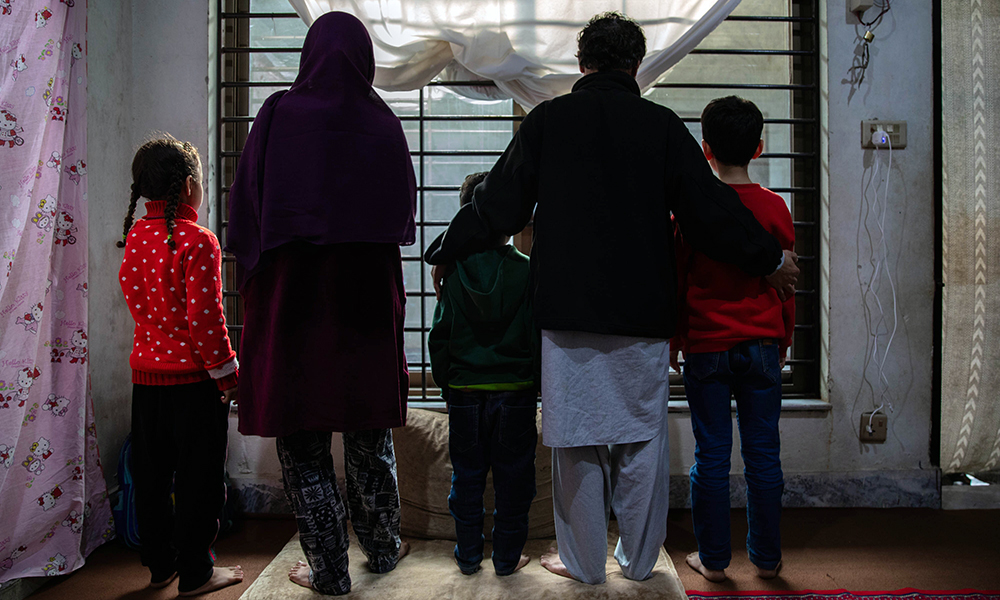
Pakistan will repatriate nearly 20,000 Afghan nationals currently awaiting resettlement in the United States, The Nation reported, citing official sources.
The move affects 19,973 Afghans living across Pakistan.
A federal directive will instruct provincial chief secretaries and police chiefs in Punjab, Sindh, Khyber Pakhtunkhwa, Balochistan, Azad Kashmir, Gilgit-Baltistan, and the Islamabad Capital Territory to begin the repatriation process immediately.
Authorities will also share verified data of the affected individuals with relevant departments to support implementation.
Following the Islamic Emirate’s return to power in 2021, more than 100,000 Afghans fled to Pakistan, many of whom had worked with the US and UK governments, international organizations, or aid agencies.
Thousands have remained stranded in Pakistan for over four years while awaiting US resettlement clearance.
Prospects for relocation have dimmed amid a suspension of case processing by the US administration, according to The Nation.
Under Pakistan’s Illegal Foreigners Repatriation Plan (IFRP), all Afghan nationals still awaiting US relocation will now be returned to Afghanistan.
Latest News
Terrorist activities observed along Afghanistan borders, says Lavrov
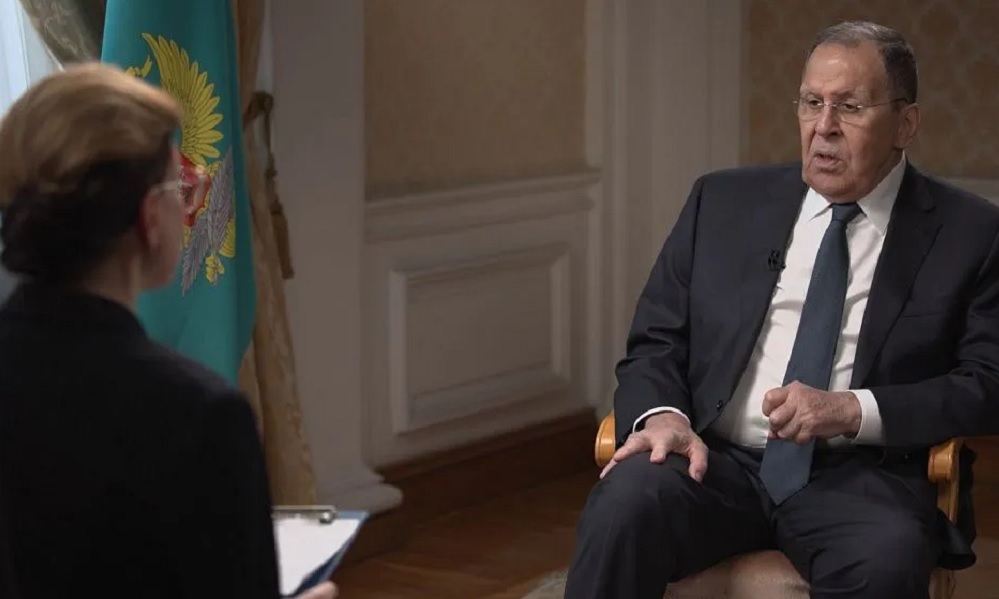
Terrorist activities continue to be observed along Afghanistan borders and along the India–Pakistan–Afghanistan corridor, Russian Foreign Minister Sergei Lavrov said in an interview published on Monday.
Speaking to Russia-based media outlet TV BRICS, Lavrov pointed to ongoing concerns in the Middle East, including its Asian regions.
He highlighted the importance of collaboration with India at the United Nations to advance a global counter-terrorism convention.
Lavrov stated that while the draft convention has already been prepared, consensus on its adoption has not yet been reached.
Russia has repeatedly expressed concern about militant threats from Afghanistan. The Islamic Emirate, however, has dismissed the concerns saying that it will not allow Afghanistan’s soil to be used against any country.
Latest News
Afghan border minister holds phone talks with Iran’s deputy foreign minister
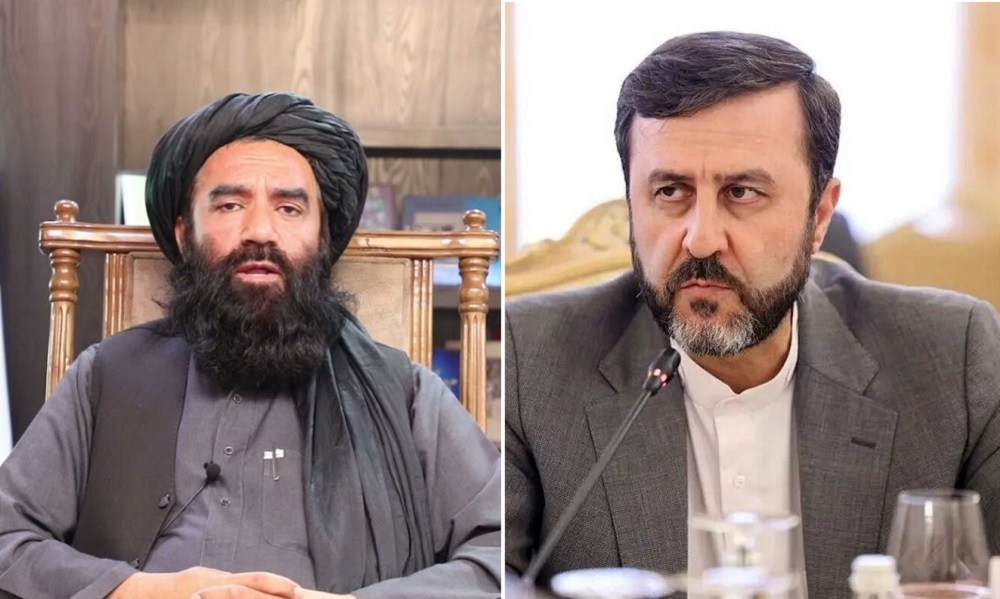
Noorullah Noori, Afghanistan’s Minister of Borders and Tribal Affairs, held a phone conversation with Kazem Gharibabadi, Iran’s Deputy Foreign Minister for Legal and International Affairs, to discuss bilateral border cooperation.
According to the Iranian news agency IRNA, both sides reaffirmed their commitment to strengthening border collaboration, with a particular focus on the ongoing renovation and updating of border markers. They also agreed to accelerate joint technical and legal meetings to enhance coordination.
As part of the agreement, the next meeting of senior border officials from Afghanistan and Iran is scheduled to take place in Iran in 1405 (2026–2027).
-

 Latest News2 days ago
Latest News2 days agoAfghanistan to grant one- to ten-year residency to foreign investors
-

 Latest News4 days ago
Latest News4 days agoTerrorist threat in Afghanistan must be taken seriously, China tells UNSC
-

 Sport3 days ago
Sport3 days agoIndonesia shock Japan to reach historic AFC Futsal Asian Cup final
-

 Sport4 days ago
Sport4 days agoMilano Cortina 2026 Winter Olympics: What You Need to Know
-

 Sport2 days ago
Sport2 days agoIran clinch AFC Futsal Asian Cup 2026 in penalty shootout thriller
-
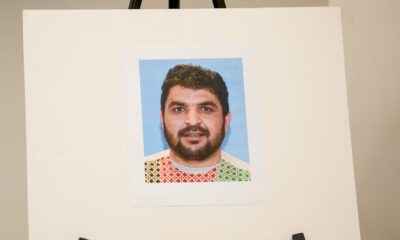
 Latest News4 days ago
Latest News4 days agoUS Justice Department to seek death penalty for Afghan suspect in National Guard shooting
-

 Latest News2 days ago
Latest News2 days agoAfghanistan says Pakistan is shifting blame for its own security failures
-
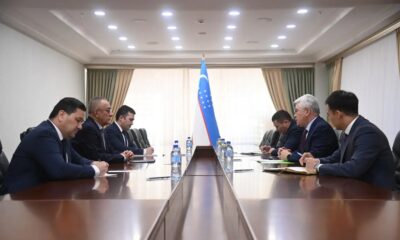
 Latest News4 days ago
Latest News4 days agoUzbekistan, Kazakhstan discuss cooperation on Afghanistan


